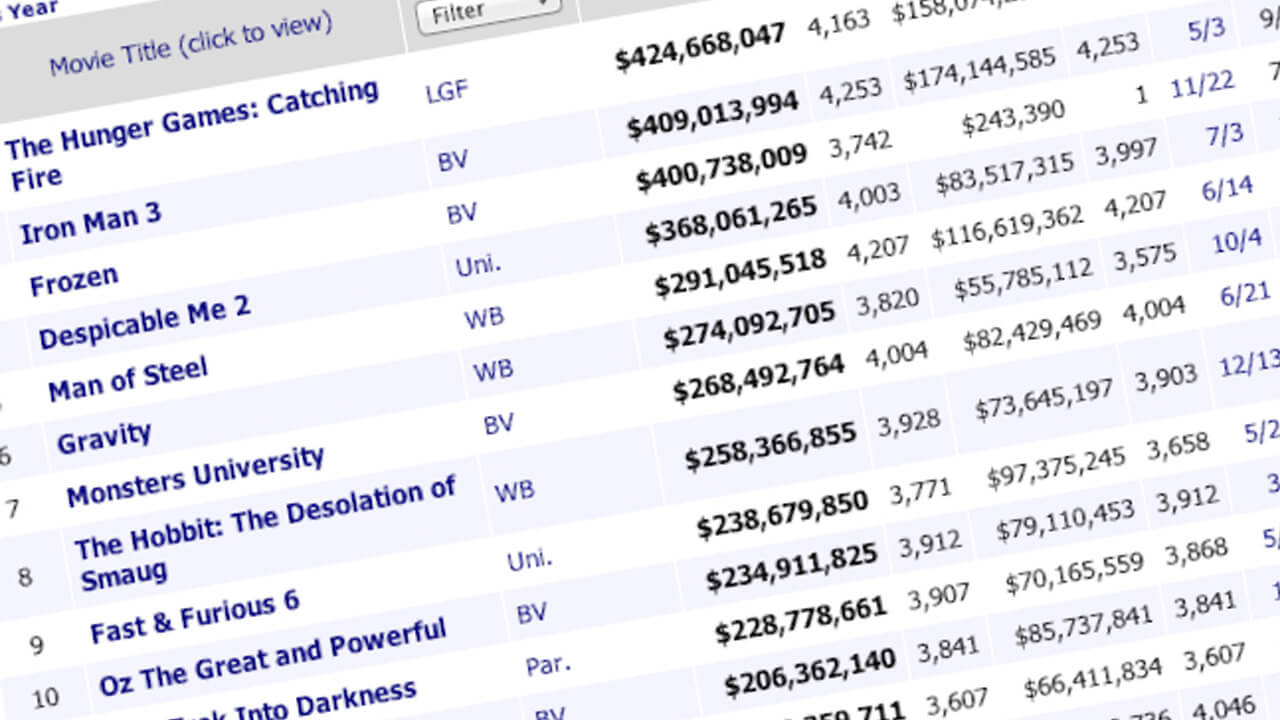One of the biggest mistakes screenwriters make is giving too little importance to commercial appeal of their story. Before putting words on the page, a writer should always ask, “Is this really something millions of people are going to pay money to see?”
If you’re not sure (or even if you think they will), open a Friday or Sunday newspaper and look at the ads for all the movies that are playing. Ask yourself whether or not your story will compete with those. Why will people choose your movie from all of those available for their big date on Saturday night? Is your story concept one that can easily be conveyed in just a newspaper ad?
You should then go to www.boxofficemojo.com and look at the top moneymaking films from the previous year to determine if yours would fit on that list. How many hits were in the same genre? The same time period? The same general location? Or if you’re considering a lower budget, independent film, look for the biggest successes within that arena to see how yours compares.
If writing a mainstream Hollywood movie is your goal, consider whether or not your story has a “high concept” – will it draw an audience regardless of who’s attached (stars, director, etc.), regardless of reviews, regardless of source material, regardless of word of mouth? Can it be simply and clearly stated within a print ad, on a billboard, in a 30-second TV spot? In other words, is the story concept alone sufficient to convince financiers that your movie will be a hit?
Take a movie like The Help – it was an extremely successful film, but it is the antithesis of a high concept movie: it’s a drama, and a period piece, about a subject that sounds heavy and depressing. But it was financed because it was based on a hugely successful book, and then was so well done that it had great word of mouth, great reviews, and garnered lots of rewards. This is what led to its box office success, not just the concept.
Basically, a high concept movie is a genre film (action, suspense thriller, comedy, romantic comedy, horror, science fiction or family film) that is easily expressed in a single sentence. It promises big, big conflict for the protagonist, has familiar elements we have seen in other movies and some unique element we’ve never seen before. If your story has all of these qualities, then it’s high concept, and is likely to have commercial potential.
Remember, always, that a high concept is no measure of artistic success. Nor is it an indication of how much satisfaction you will derive from writing it. But if you ignore the financial potential of your story concept, you are likely to end up with a screenplay that never reaches the screen.





